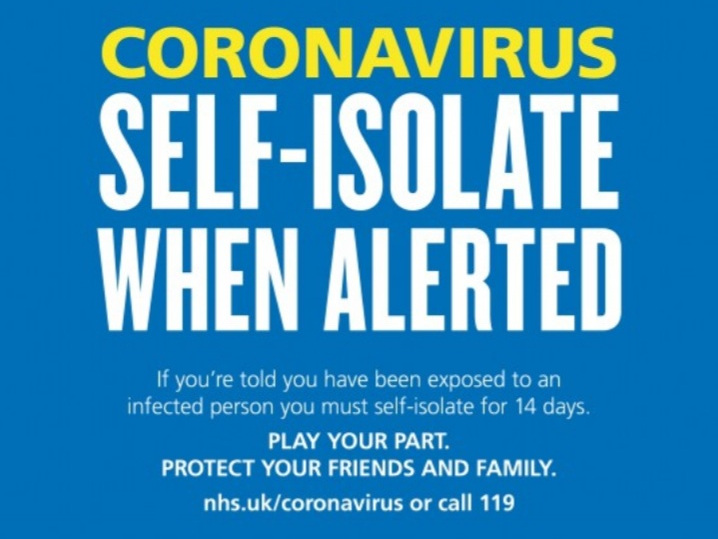Editor’s note: With a large illegal party at Greatstone-on-Sea last weekend, another planned (but banned by the police) at Camber this weekend, and many holidaymakers around of all ages, Covid-19 concerns are still very much at the forefront of people’s minds, whether they are vulnerable through age and existing health conditions, or their future employment seems uncertain, and the article below deals with some of the issues, and your fears, and answers – if there are any.
Anthony Kimber writes: The World Health Organization (WHO), reports 20 million cases of Covid-19 globally with almost ¾ million deaths and, drawing on its own evidence, the WHO suggests that Covid-19, unlike flu, is not seasonal. There is no expected spike in autumn and winter, rather doctors suggest that “If you take pressure off the virus, it will bounce back”.
The WHO executive director leading on Covid-19 underscored “targeted action was the way to tackle local outbreaks”, citing the local lockdown in Leicester as a preferred tactic. In the UK, the government has said that although the numbers remain fairly stable compared to many other states, it will not shrink from imposing further local lockdowns if the infection rate rises in a particular area.
Britain’s Academy of Sciences has just reported that it was looking at the pandemic scenario for the autumn and it suggests that when schools and universities return and there is more activity in enclosed spaces, the risk of transmission will rise and the number of those infected and needing hospital treatment will aggravate the backlog of patients seeking NHS treatment for other problems.
Opening the Schools and Test and Trace
There is much debate about the need to open schools in September. The PM has asserted that it is “not right that kids should spend more time out of school, it’s much better for their health and mental wellbeing, and obviously their educational prospects, if everybody comes back to school full-time in September.”
Listening to school principals and heads in the media, though, an enormous amount of work is under way on risk assessment, management and communication with parents. But there is also uncertainty about the risks, particularly as Public Health England has just reported that secondary school pupils can transmit the virus as easily as adults (even if this is not true for younger children). This will no doubt increase the call for specific contingencies for handling any rise in infections around schools.
Linked to school openings, there remains a call for an effective test and trace system. The national system has attracted significant criticism, which has perhaps contributed to the government moving away from centralisation to a more localised system as proven in Leicester and other urban areas where there have been recent spikes.
One observer, a lifelong NHS insider and the former chief executive of the health charity the Kings Fund, suggests that the basic insight either ignored or misunderstood by the government was plain. “Contact tracing has to be led locally by people who work in the communities that are affected and understand them” and here in Rye we have been adding our voice to the call for accurate local data and a localised approach to testing.
With hundreds of volunteers in Rye Mutual Aid (RMA), now dwindling in number as demand for community support reduces, if asked, we could have provided vital local knowledge and contacts to aid the process. We will be monitoring the move to “local integrated testing and tracing” developments as they occur in the coming weeks. See the website for the latest information.
Day (and night) Visitors and Traffic

The hot weather has seen huge numbers arriving for day visits at local beaches, particularly Camber and the traffic, illegal parking and rubbish have antagonised residents. And last weekend, one beach event scheduled for Camber was shifted to Greatstone by the organisers and hundreds of (mainly) Londoners arrived for a Jamaica Day celebration.
The many images on social media and in the Press show a complete lack of social distancing, and other mitigations and local litter pickers spent ages clearing up afterwards. Meanwhile in Rye last weekend, there were reports that some pubs saw large groups of individuals or several families attempting to enter contrary to the guidance and social distancing rules.
After 20 weeks of lockdown these events and commentary in the Press and media suggest rising frustrations with the mitigations and restrictions, particularly for those in high density dwellings in urban areas. It is clear that some just want to be by the seaside come what may, which can be alarming for those keeping to themselves and abiding by the guidance.
Tourism further afield
With the uncertainty about quarantine requirements being imposed on those returning from overseas, more are staying at home or holidaying in UK and we are seeing plenty of visitors coming to Rye for long weekends and “Staycations” and I included mention of this in last week’s report.
For those considering travelling abroad, the government has said that it is monitoring infection rates in France, Switzerland, Netherlands, Greece and Poland (among others). If rates there continue to rise then they will join the list of countries from where arrivals are subject to 14-day quarantine measures. Individuals with travel plans have been told to look closely at the travel advice from the Foreign Office as the position can change rapidly.
Employment
Lockdown has caused business to slump between April and June, resulting in the economy shrinking by just over 20% compared with the first three months of the year. With output and spending falling, the UK, perhaps unsurprisingly, is now in the first recession since 2009 and in the same quarter the Office for National Statistics records the number of people in work (on payroll) had decreased by 220,000.
The youngest and oldest workers and those in manual occupations have been the worst hit during the pandemic and Rye’s High Street has not been immune to closures. Although the UK economy has been battered by the pandemic, unemployment is not as high as was feared because of the large numbers on furlough. However, the predictions are even gloomier as unemployment is set to worsen in coming months as the furlough scheme is wound down.
With so many in Rye and District reliant on tourism and hospitality and often with no long term contracts, there is local concern about these warnings, and in particular that we are in the “lull before the storm”.
Image Credits: NHS , Flavour Boss, Croydon .



